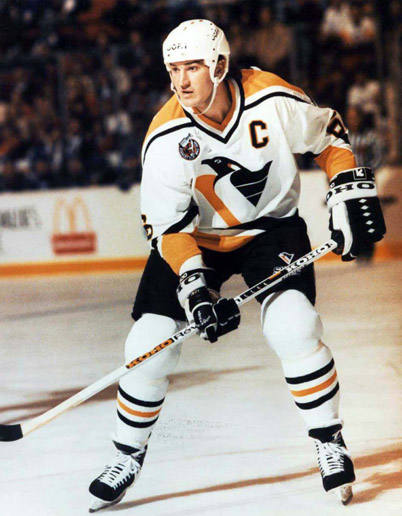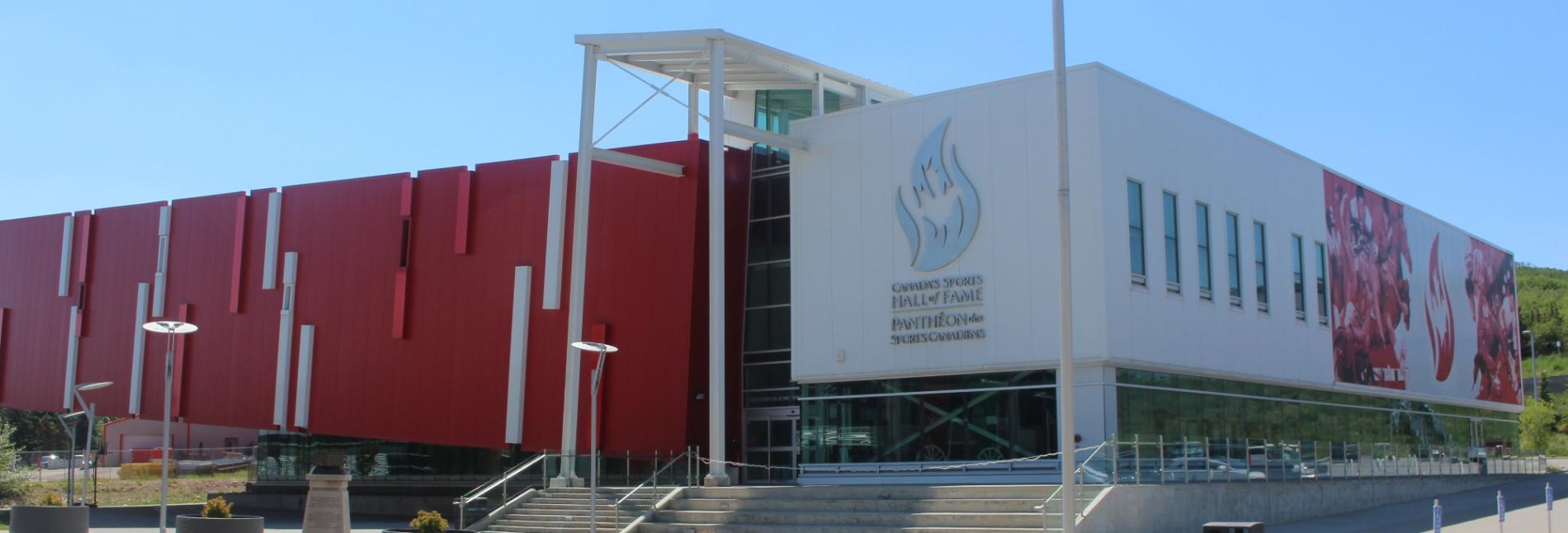Hall of Famer
Mario Lemieux
Inducted in 1998
Member Details
Career Highlights
Won Art Ross Trophy four times
Won Lester Pearson Award four times
Won Conn Smythe Trophy twice
Calder Trophy
Stanley Cups - Pittsburgh Penguins
Salt Lake Olympics - Gold Medal

Story
Arguably the most talented player the hockey world has ever known, Mario Lemieux retired in early 2005 after having accomplished all there was to have accomplished. He joined the Pittsburgh Penguins as an 18-year-old in 1984, scored a goal on his first shift, and never looked back. At the All-Star Game at mid-season of his first year, the rookie was named MVP, and at year's end he won the Calder Trophy after reaching the 100-point mark. Lemieux scored 43 goals in his first year, 48 the year after, and then started posting eye-popping numbers. He had 54 in his third year, then 70 and 85 the next two years. When he had 168 and 199 points, respectively, to win the scoring title from the great Wayne Gretzky, it appeared he was poised to take over Gretzky's title as best player in the world. In fact, the latter season remains the best year ever by a player not named Gretzky. Ironically, it was Gretzky who helped Lemieux reach these heights. In training camp for the 1987 Canada Cup, Gretzky confronted Lemieux for his mediocre play, telling him to continually push himself to raise his level of intensity and ambition. During the tournament, Lemieux scored eleven goals, nine of which were assisted by Gretzky. The last of those was also the most important. It gave Canada a dramatic 6-5 win in the dying minutes of the finals against the Soviets, and the goal became the most important goal for Team Canada after Paul Henderson's some 15 years earlier at the 1972 Summit Series. Lemieux left that series and went back to the Penguins and scored those 70 goals. By the late 1980s, he not only was at the height of his powers but he had a great core of players around him and the team became a Cup contender. Lemieux took the Penguins to the Cup championship in 1991 and 1992, winning the Conn Smythe Trophy both years. Despite his greatness, Lemieux started to experience serious injury troubles. He developed a bad back which forced him out of the lineup for long stretches, and he missed all of 1994-95 fighting Hodgkin's Disease. Amazingly, when he played he almost always scored. In 1995-96, after a year and a half away from the game, he led the league in goals (69), assists (92), and points (161). Lemieux retired in 1997 at age 31. He was tired of fighting a back injury, and just as tired of fighting the ever-increasing hooking and holding that was dragging the game down. He became the team's owner, but after three and a half years he decided to return to the ice. As if no time had elapsed, he scored a goal in his first game and was back to averaging nearly two points a game. The highlight of the second part of his career came in 2002 at the Olympics in Salt Lake City. He was named captain of the team, and his poise and performance led Canada to an historic gold medal, the country's first since 1952. He was forced to retire early in 2006 when an irregular heartbeat became a recurring problem for him. By this time, his place in history had long been established. Despite playing 17 seasons, he appeared in only 915 regular-season games. Yet, Lemieux had ten seasons of 100 points or more, six years of 50 goals or more. His 1,723 points meant that he had averaged nearly two points a game for his career. If he wasn't the greatest, he was awfully close.






